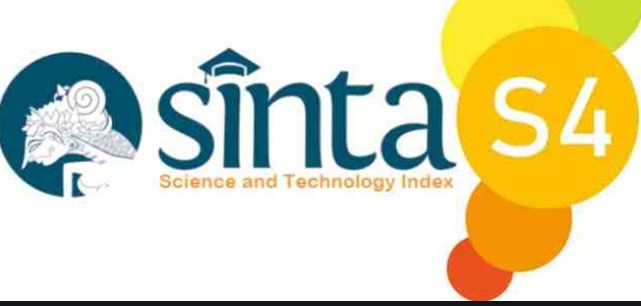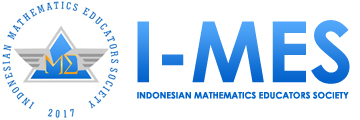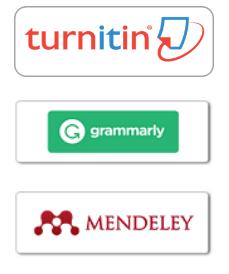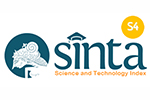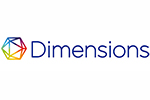LEVERAGING AI TECHNOLOGY FOR MATHEMATICAL PROBLEM-SOLVING: THE ROLE OF DESMOS IN PROBLEM-BASED LEARNING ENVIRONMENT
DOI:
https://doi.org/10.36706/jls.v7i1.60Keywords:
desmos, graphing calculator, linear program, ; problem-based learning, problem-solvingAbstract
This study aims to determine students' mathematical problem-solving abilities in linear program materials through problem-based learning (PBL) assisted by a Desmos graphing calculator. This research is qualitative descriptive research. The subject of this study is a class X student of Srijaya Negara High School, Palembang. Data collection uses tests, interviews, and observation methods. The analysis of test data was carried out by describing the subject's ability to solve mathematical problems, the analysis of interview data was carried out by transcribing the interview results into written form, and the analysis of observation data was carried out by making a brief description based on the observation results. The results of the study show that students' problem-solving skills in the medium category can be developed by applying a problem-based learning model assisted by the Desmos graphing calculator. This can be seen in students who can understand the problem presented, create a problem-solving plan in the form of a mathematical model, execute the plan using a Desmos graphing calculator, analyze the results obtained, and re-check the problem-solving process.
Downloads
References
Abbott, A. A., Shin, J., Carlson, K., Russell, M., Qi, Y., Storm, H., & Jewell, V. D. (2025). Achieving Inter-Rater Agreement and Inter-Rater Reliability to Assess Fidelity of an Occupation-Based Coaching (OBC) Clinical Trial Intervention. British Journal of Occupational Therapy, 88(3), 133–141. https://doi.org/10.1177/03080226241283292
Acharya, N. H. (2023). Overview of Cooperative Learning Strategies in Mathematics Teaching and Learning. Innovative Research Journal, 3(2), 87–95. https://doi.org/10.3126/irj.v3i2.61802
Adawiyah, R., Meiliasari, M., & Aziz, T. A. (2022). The Role of Prior Mathematical Knowledge and Interest in Mathematics on Mathematical Concept Understanding Ability in Senior High School Students. (JIML) Journal of Innovative Mathematics Learning, 5(4), 196–204. https://doi.org/10.22460/jiml.v5i4.15397
Adlina, A., Syahputra, E., & Sitompul, P. (2024). The effect of mathematical literacy ability, critical thinking ability, and mathematical communication ability on the mathematical problem solving ability. Proceedings of the 5th International Conference on Science and Technology Applications, ICoSTA 2023, 2 November 2023, Medan, Indonesia. https://doi.org/10.4108/eai.2-11-2023.2343261
Aleupah, M. K., Gella, N. J. M., & Bien, Y. I. (2023). Ability to Understand Mathematical Concepts of Students through Mind Mapping Method. International Journal Of Humanities Education and Social Sciences (IJHESS), 2(4). https://doi.org/10.55227/ijhess.v2i4.353
Alsaif, F., Neel, L., Almuaiqel, S., Almuhanna, A., Feda, J., Alrumaihi, N., Alanazi, O., Almansour, M., Saeed, M. F., & Soliman, M. (2023). Experience of Sudden Shift from Traditional to Virtual Problem-Based Learning During COVID-19 Pandemic at a Medical College in Saudi Arabia. Advances in Medical Education and Practice, Volume 14, 453–461. https://doi.org/10.2147/AMEP.S404461
Amal, I., Fadhiliani, D., & Hasbi, M. (2024). Examining The Modelling Skills of Grade 8 Students on The System of Linear Equation in Two Variables through Problem-Based Learning Model. Jurnal Ilmiah Pendidikan Matematika Al Qalasadi, 8(2), 133–139. https://doi.org/10.32505/qalasadi.v8i2.8248
Angriani, V., Darto, & Zein, M. (2021). The effect of using group investigation learning model and prior knowledge toward student problem solving skills on Mathematics subject at junior high school. Journal of Physics: Conference Series, 1806(1), 012104. https://doi.org/10.1088/1742-6596/1806/1/012104
Anitha, D., & Kavitha, D. (2023). Improving problem-solving skills through technology assisted collaborative learning in a first year engineering mathematics course. Interactive Technology and Smart Education, 20(4), 534–553. https://doi.org/10.1108/ITSE-03-2022-0030
Apriatni, S., Syamsuri, S., Nindiasari, H., & Sukirwan, S. (2022). The Influence of Ethnomathematics Based Learning on Mathematics Problem-Solving Ability: A Meta-Analysis. Jurnal Pendidikan Matematika (JUPITEK), 5(1), 23–33. https://doi.org/10.30598/jupitekvol5iss1pp23-33
Çeti̇n, İ., Aydin, M., & Bi̇Lgi̇Ç, Ş. (2024). Review of Mathematical Modeling Research: A Descriptive Content Analysis Study. Necatibey Eğitim Fakültesi Elektronik Fen ve Matematik Eğitimi Dergisi, 17(2), 994–1025. https://doi.org/10.17522/balikesirnef.1321365
Chechan, B., Ampadu, E., & Pears, A. (2023). Effect of using Desmos on high school students’ understanding and learning of functions. Eurasia Journal of Mathematics, Science and Technology Education, 19(10), em2331. https://doi.org/10.29333/ejmste/13540
Difinubun, F. A., Makmuri, M., & Hidayat, F. A. (2024). Preliminary Study On The Development of Project-Based Learning Module to Improve Students’ Mathematical Problem Solving Ability. Mathline : Jurnal Matematika Dan Pendidikan Matematika, 9(2), 605–628. https://doi.org/10.31943/mathline.v9i2.638
Foster, C., Francome, T., Hewitt, D., & Shore, C. (2021). Principles for the design of a fully-resourced, coherent, research-informed school mathematics curriculum. Journal of Curriculum Studies, 53(5), 621–641. https://doi.org/10.1080/00220272.2021.1902569
Hayati, I. (2021). Tinjauan Model Pembelajaran Missouri Mathematics Project (MMP) untuk Meningkatkan Kemampuan Pemecahan Masalah. Al-Rabwah, 14(02), 116–135. https://doi.org/10.55799/jalr.v14i02.47
Hendarwati, E., Nurlaela, L., Bachri, B. S., & Sa’ida, N. (2021). Collaborative Problem Based Learning Integrated with Online Learning. International Journal of Emerging Technologies in Learning (iJET), 16(13), 29. https://doi.org/10.3991/ijet.v16i13.24159
Jaenal, E., Putra, H. D., Sugandi, A. I., & Hendriana, H. (2023). Analysis of Vocational School Students’ Error in Solving Linear Program Problems. (JIML) Journal of Innovative Mathematics Learning, 6(3), 202–214. https://doi.org/10.22460/jiml.v6i3.17964
Jamil, M., Batool Bokhari, T., & Iqbal, J. (2024). Incorporation of Critical Thinking Skills Development: A Case of Mathematics Curriculum for Grades I-XII. Journal of Asian Development Studies, 13(1), 375–382. https://doi.org/10.62345/jads.2024.13.1.32
Jihan, J. R., & Hendriana, B. (2023). Application of ADDIE Learning Model Assisted by Desmos Application to Improve Ability to Understand Mathematical Concepts. JTMT: Journal Tadris Matematika, 4(02), 181–189. https://doi.org/10.47435/jtmt.v4i02.2043
Juniar, B. B. & Meiliasari. (2025). Systematic Literature Review: Model Pembelajaran untuk Meningkatkan Kemampuan Literasi Matematika Siswa. Jurnal PEKA (Pendidikan Matematika), 8(2), 70–79. https://doi.org/10.37150/jp.v8i2.3189
Khaesarani, I. R., & Ananda, R. (2022). Students’ mathematical literacy skills in solving higher-order thinking skills problems. Al-Jabar : Jurnal Pendidikan Matematika, 13(1), 81–99. https://doi.org/10.24042/ajpm.v13i1.11499
Kurino, Y. D., Herman, T., Turmudi, T., Yonanda, D. A., & Haryanti, Y. D. (2024). Enhancing Mathematical Problem-Solving Skills Through Flipped Classrooms and Discovery Learning: A Resilience-Based Approach for Elementary Students. AL-ISHLAH: Jurnal Pendidikan, 16(4). https://doi.org/10.35445/alishlah.v16i4.6243
Lewis, J., & Sireci, S. G. (2022). Digital Module 30: Validity and Educational Testing: Purposes and Uses of Educational Tests. Educational Measurement: Issues and Practice, 41(4), 81–82. https://doi.org/10.1111/emip.12533
Macedo, M. L. M., Chaves, S. P. L., Amaral, A. K. D. F. J. D., Pontes, É. S., Silva, D. D. N., Cruz, R. D. L., & Souza, N. C. R. D. (2020). Content and layout development and validation of a vocal health guide for older adults. Revista CEFAC, 22(1), e6619. https://doi.org/10.1590/1982-0216/20202216619
Muqarrabin, F., Ismaimuza, D., Meinarni, W., & Sukayasa, S. (2024). Analysis of Problem-Solving Abilities in Completing Story Problems on Combination Material Based on Student Learning Styles. Prisma Sains : Jurnal Pengkajian Ilmu Dan Pembelajaran Matematika Dan IPA IKIP Mataram, 12(1), 189. https://doi.org/10.33394/j-ps.v12i1.10625
Nuri, B., Zikriana, L., & Iqbal, I. (2023). Effectiveness of Desmos Application Integrated with PjBL in Multimedia Mathematics Learning in Terms of Mathematical Literacy Skills. Jurnal Penelitian Pendidikan IPA, 9(11), 10457–10465. https://doi.org/10.29303/jppipa.v9i11.5497
Octaria, D., Zulkardi, Z., & Putri, R. I. I. (2023). Systematic Literature Review: How students learn linear programming with realistic mathematics education? International Journal of Trends in Mathematics Education Research, 6(1), 41–46. https://doi.org/10.33122/ijtmer.v6i1.174
Peni, N. R. N., & Dewi, D. A. K. (2023). Development Research Framework for Designing Functions Class Using Desmos. Futurity Education, 3(4), 73–94. https://doi.org/10.57125/FED.2023.12.25.05
Purba, A., & Ramadhani, S. (2020). The Improvement of Students Mathematical Problem Solving Ability by Implementing Cooperative Learning Model in SMP Tunas Pelita Binjai. Journal of Research on Mathematics Instruction (JRMI), 1(2), 31–37. https://doi.org/10.33578/jrmi.v1i2.20
Rahman, N. A. A. A., & Abdullah, M. F. N. L. (2022). A study on the use of collaborative learning to enhance mathematical understanding among elementary students. EDUCATUM Journal of Science, Mathematics and Technology, 9(2), 10–15. https://doi.org/10.37134/ejsmt.vol9.2.2.2022
Salsabila, A. Z., Yuliani, A., & Amelia, R. (2024). Literatur Review: The Effect Of Distance Learning on Students’ Mathematical Problem Solving Skill. (JIML) Journal of Innovative Mathematics Learning, 7(1), 11–19. https://doi.org/10.22460/jiml.v7i1.18570
Santos, J. L. G. D., Barrios, E. L. E., Creamer, E. G., & Onwuegbuzie, A. J. (2020). Mixed Methods Research in Latin America: Initiatives and Opportunities for Expansion. Texto & Contexto - Enfermagem, 29. https://doi.org/10.1590/1980-265x-tce-2020-0001-0001
Shah, P. N., Mishra, D. K., Falahat, P., Fischer, L., Guzman, G., Terheyden, J. H., Holz, F. G., Krohne, T. U., Finger, R. P., & Wintergerst, M. W. M. (2023). Inter-Rater Reliability of Proliferative Diabetic Retinopathy Assessment on Wide-Field OCT-Angiography and Fluorescein Angiography. Translational Vision Science & Technology, 12(7), 13. https://doi.org/10.1167/tvst.12.7.13
Shorey, S., & Ng, E. D. (2022). Examining characteristics of descriptive phenomenological nursing studies: A scoping review. Journal of Advanced Nursing, 78(7), 1968–1979. https://doi.org/10.1111/jan.15244
Supiter, H. J. F., & Rabut, J. F. (2025). Application of Desmos Graphing Calculator in the Context of Maguindanaon Learners in their Least Learned Competencies. International Journal of Science, Architecture, Technology and Environment, 909–925. https://doi.org/10.63680/ijsate052566.79
TLS, D. S., & Herman, T. (2020). An Analysis of Pre-Service Mathematics Teachers’ Desmos Activities for Linear Programming Lesson. International Journal of Pedagogical Development and Lifelong Learning, 1(1), ep2002. https://doi.org/10.30935/ijpdll/8312
Yanto, F., Festiyed, F., & Enjoni, E. (2021). Problem Based Learning Model For Increasing Problem Solving Skills In Physics Learning. JIPF (Jurnal Ilmu Pendidikan Fisika), 6(1), 53. https://doi.org/10.26737/jipf.v6i1.1870
Zhou, G., Liu, W., Guo, S., & Lin, Y. (2025). Where Are We in Online Project‐Based Learning? Evidence From a Visualized Bibliometric Review (2013–2023). Computer Applications in Engineering Education, 33(3), e70044. https://doi.org/10.1002/cae.70044
Zhou, Y. (2023). Teaching Mixed Methods Using Active Learning Approaches. Journal of Mixed Methods Research, 17(4), 396–418. https://doi.org/10.1177/15586898221120566
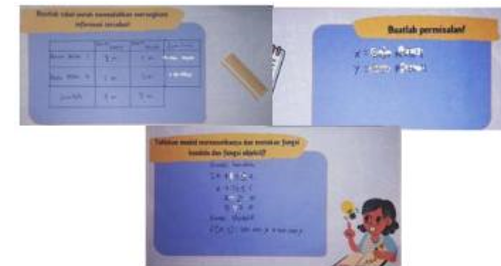
Downloads
Published
How to Cite
Issue
Section
Citation Check
License
Copyright (c) 2025 fatimah azzahroh, ely susanti

This work is licensed under a Creative Commons Attribution-NonCommercial-ShareAlike 4.0 International License.


